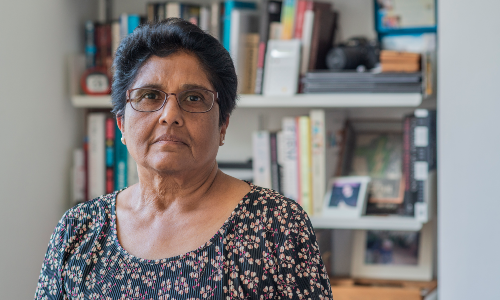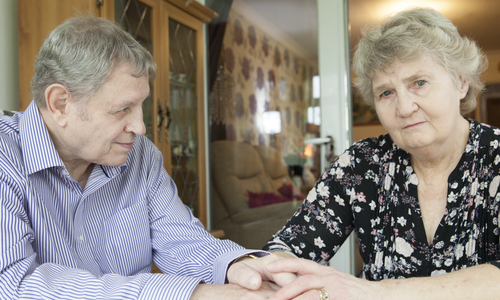The contribution that unpaid carers make to society is frequently underestimated and undervalued. Too often, those who look after loved ones don’t see themselves as carers. For many, a carer is a paid professional – and so providing support to those close to you is something you ‘just do’.
Despite this lack of recognition, the impact of unpaid carers is enormous. It is estimated that there are currently 10.6 million unpaid carers in the UK. Many older people are supported by unpaid carers, and 1 in 5 (20%) of people aged 65+ are unpaid carers themselves.
What toll does caring take?
The impact of caring responsibilities affects nearly all elements of people’s day-to-day lives – from their health to their finances.
When looking after someone else, many carers find that looking after themselves becomes de-prioritised. This can particularly affect older carers, who may be living with multiple health conditions of their own. The State of Caring 2023 survey by Carers UK found that the most commonly reported challenge by unpaid carers was the impact of caring on physical and mental health – 82% of carers said this would be a challenge.
The effect on carers’ mental wellbeing can be significant, provoking stress, anxiety and loneliness. Recent Age UK research found that for unpaid carers aged 50+ :
- Almost 9 out 10 (86%), equivalent to 3.3 million across England, had worried about whether they will be able to keep caring or providing support.
- Almost half (48%), equivalent to 1.9 million carers across England had felt anxious because of the care or support they provide.
- More than a third (34%), equivalent to 1.3 million of carers across England, had felt overwhelmed because of the care or support they provide.
- More than a fifth (21%), equivalent to 830,000 carers across England, had felt lonely because of the care or support they provide.
- Over a half of carers (51%), equivalent to 2 million, have not been sleeping well.
There can also be significant financial pressure on unpaid carers, and the cost of living crisis has only helped deepen these worries. The increase in household bills – such as heating – and the cost of buying food is being felt by carers, who are left less able to afford things to support their own wellbeing. Juggling work and caring responsibilities can be very difficult and for many people this means giving up work to continue to provide care, which has a significant impact on income.
We have free resources available
Our website has a host of public resources available that can be used to signpost carers to support.
What can we do?
There is a lot that needs to be done for carers to feel supported, acknowledged and valued. However, there are some key things that we can all do to support carers:
- Help make people aware that they’re a carer. It’s very common for people who are providing unpaid care to not realise that they are a carer which can mean that they are missing out on crucial support. Health care professionals can play an important role in supporting someone to realise that they are a carer.
- Help raise awareness for the available support. Many carers are not aware of the support that is available, from both a national level and from organisations in their local area. We all have a role in providing unpaid carers with information to support them in their caring role and ensuring that they get all the support that they can.
- Make sure carers’ records are up to date. It’s important that carers’ records are up to date and that this information is recorded in an accurate way on both the carers’ record and that of the person they care for. When a carer needs health treatment, it’s important to consider their caring role and what this may mean for treatment, appointments and recovery.
Information you can trust
Our monthly professionals newsletter covers a range of information and advice topics, helping professionals offer older people the most relevant and up-to-date guidance.






